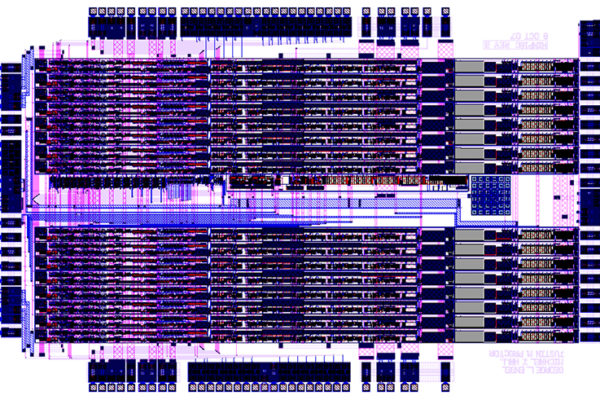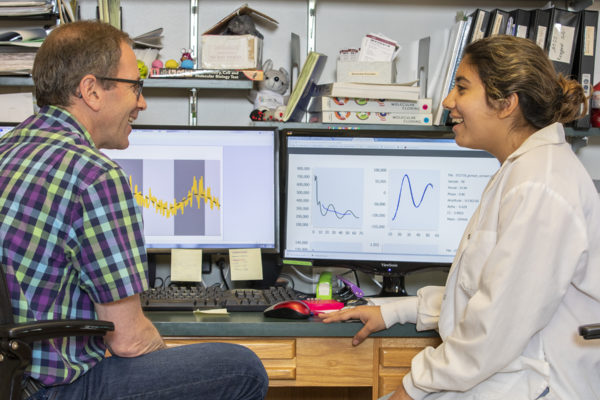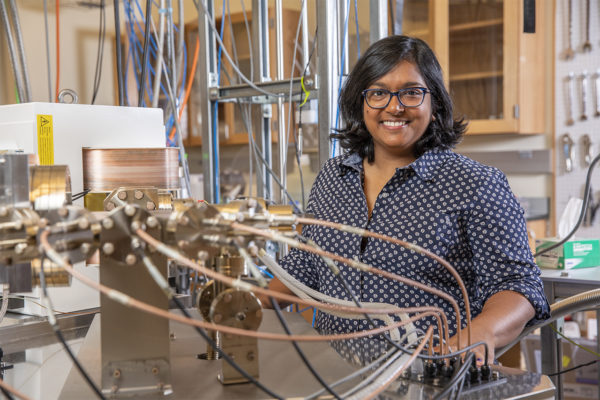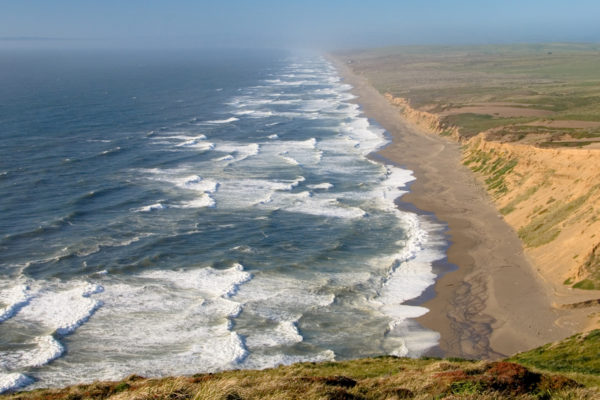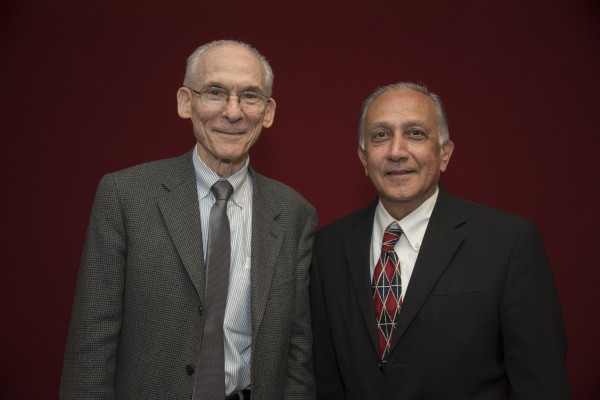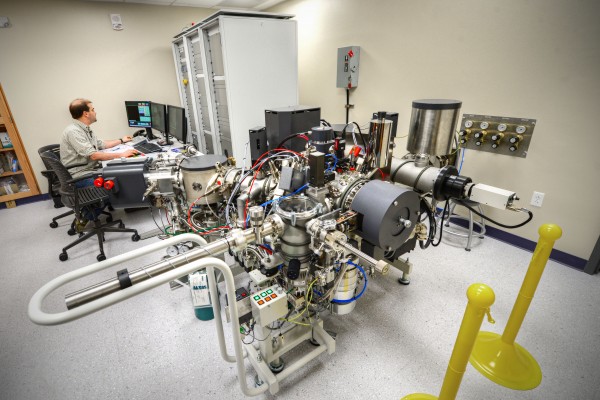Improving nuclear detection with new chip power
A cross-disciplinary team of chemists and physicists in Arts & Sciences is building a better computer chip to improve detection and surveillance for the illegal transport of nuclear materials at U.S. borders. The work is part of a new, five-year, $10 million collaboration in low-energy nuclear science led by Texas A&M University.
A path to diversity in neuroscience
With a strong focus on community, the undergraduate pipeline program ENDURE at Washington University in St. Louis prepares students from diverse backgrounds for neuroscience doctoral programs.
There and back again: Mantle xenon has a story to tell
Rita Parai, assistant professor of geochemistry in Arts & Sciences, constrains the history of volatile transport from the atmosphere into the deep Earth in a new publication in the journal Nature.
New life for endangered coastal lupine
A rare, coastal flowering plant known as Tidestrom’s lupine — threatened by native deer mice that can munch up to three-quarters of its unripe fruits under cover of an invasive beachgrass — has been given a new life with the large-scale removal of that grass, a long-term study in the journal Restoration Ecology shows.
Blankenship wins 2015 Midwest Award from American Chemical Society
Robert Blankenship, PhD, the Lucille P. Markey Distinguished Professor of Arts & Sciences at Washington University in St. Louis, has won the St. Louis Section of the American Chemical Society’s 2015 Midwest Award.
Hayes wins American Chemical Society’s 2015 Saint Louis Award
Sophia Hayes, PhD, professor of chemistry in Arts & Sciences at Washington
University in St. Louis, has won the American Chemical Society St. Louis Section’s 2015 Saint Louis Award.
Voyager expert Stone to speak for Robert M. Walker Distinguished Lecture Series
At 7 p.m. Thursday, Nov. 12, Edward C. Stone, PhD, project scientist and public spokesman for the twin Voyager spacecrafts, will visit the campus of Washington University in St. Louis and describe the probes’ 36-year journeys across the solar system. Stone will describe spectacular flybys of Jupiter, Saturn, Uranus and Neptune and Voyager I’s departure from the solar system. The lecture is part of the Robert M. Walker Distinguished Lecture Series hosted by the McDonnell Center for Space Sciences in Arts & Sciences.
Bose named Packard Fellow
Arpita Bose, PhD, assistant professor of biology in Arts & Sciences at Washington University in St. Louis, has been named a Packard Fellow, a prestigious distinction awarded to only 18 top young researchers nationwide this year. Bose plans to use the grant to work with unusual microbes that can take electrons directly from an outside source to draw down atmospheric carbon dioxide or make sustainable biofuels.
WashU Expert: Brace yourself, it’s fall-back time again
Falling back is easier on us than springing forward, says Erik Herzog, a biologist at Washington University in St. Louis who has devoted his career to studying body clocks and circadian rhythms. But it is never a good idea to force our body clocks to follow abrupt changes in mechanical clocks. We should get rid of daylight savings time, Herzog says.
$2.4 million instrument upgrade will let scientists see what is happening inside microbes
The U.S. Department of Energy has awarded David Fike, PhD, associate professor of earth and planetary sciences, $2.4 million to adapt a powerful chemical microscope called the 7F-GEO SIMS for biological samples. The updated instrument’s ability to map the chemistry inside cells will boost research on microbes that are promising candidates for biofuel or bioenergy production.
View More Stories
